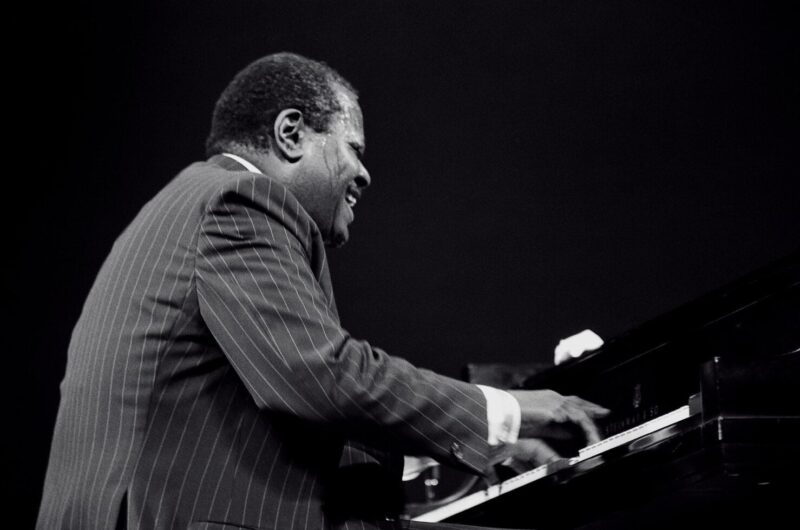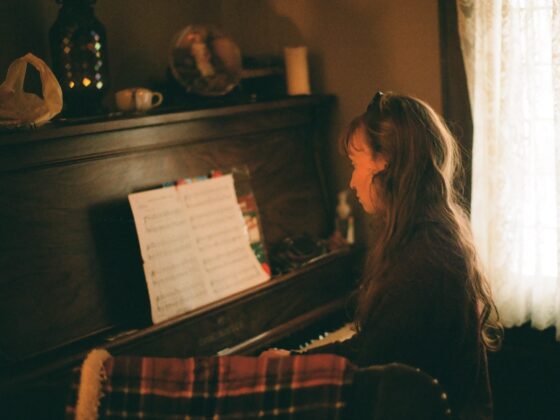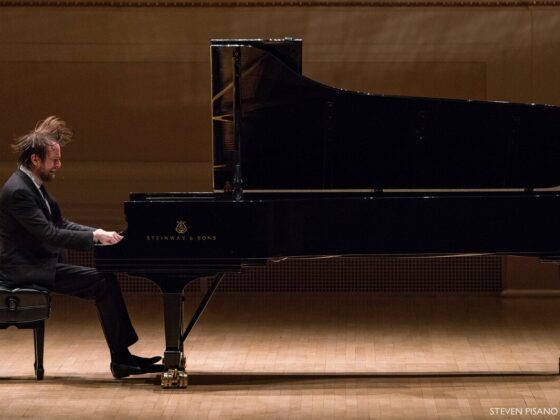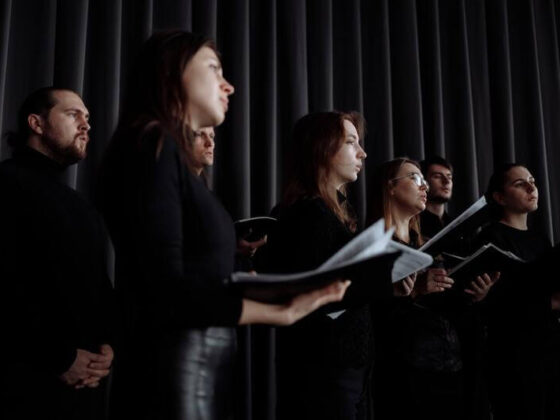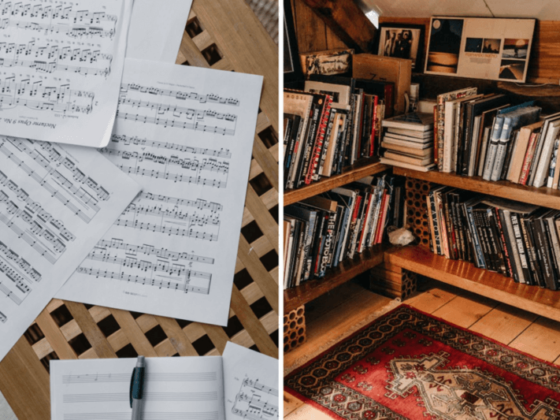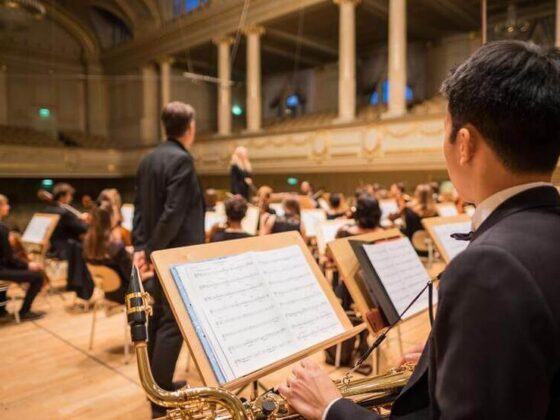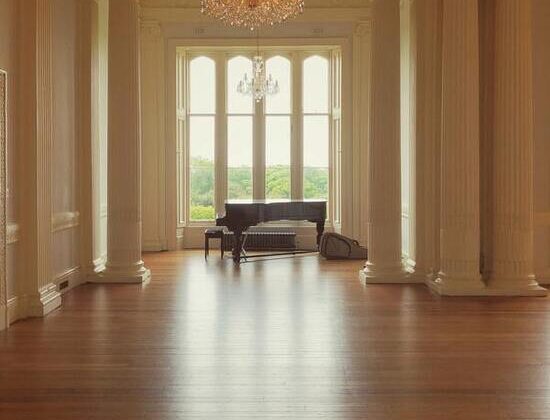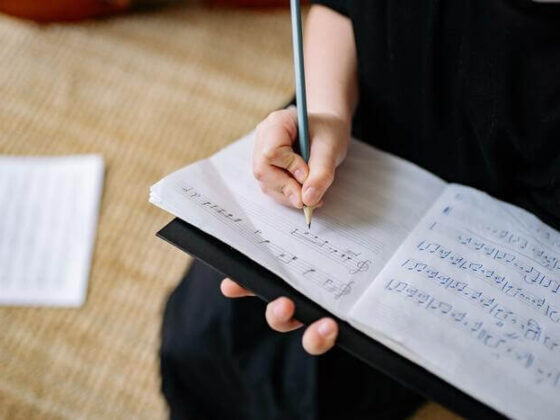Black piano players have played a crucial role in shaping the music world throughout history, despite racism providing them with much fewer opportunities for education, representation, and acceptance compared to white musicians.
To make sure I’ve done my part for the Black Lives Matter movement in this music blog, I wanted to compile all the famous black piano players that have not only been influential in jazz music but also in classical music (yes, black classical pianists exist).
Related: 5 Famous Pianists Who Started Late
From the slave child music prodigy Blind Tom Wiggins to the Green Book inspiration virtuoso Don Shirley, today we look at the most famous black pianists who have ruled the music scene and didn’t let their skin color put up barriers to their successes.
Black Jazz Pianists
Ahmad Jamal
Considered to be one of the most exceptional jazz pianists in history, Ahmad Jamal has released more than 50 albums and received countless awards throughout his long career to this day. What is even more impressive is that he is still performing and releasing albums despite being 90 years old.
He had a significant influence on Miles Davis, the acclaimed jazz virtuoso, and trumpeter.
What sets Ahmad Jamal apart from the other contemporary artists was the innovative style he introduced to jazz music. Instead of following the dominant path of fast and virtuosic playing in jazz music at the time, he brought his unique approach to jazz piano, which was directed towards the exploration of space, timbre, rhythm, and speed changes.
Ahmad Jamal is most known for his most popular album, At the Pershing: But Not for Me.
Art Tatum
Visually impaired jazz virtuoso Art Tatum is probably the best jazz pianist that the music world has ever encountered so far.
His other-worldly piano skills made a lot of musicians like Les Paul stop piano and switch to other instruments because they felt incompetent after listening to Tatum.
Even Horowitz is rumored to stop performing for years to improve his piano skills after hearing Tatum playing a classical piece he heard for the first time with an extraordinary technique and improvisational style.
As a blind black pianist, it is apparent that he pushed all the boundaries.
This greatest jazz pianist couldn’t live longer than 47 years, though his influences will surely remain for decades.
Herbie Hancock
Despite starting with a classical piano education as a child prodigy, Hancock got obsessed with jazz music during his teens, constantly listening to jazz recordings and practicing to improve his ear.
Takin’ Off was Hancock’s first album, which quickly led him to be recognized by Miles Davis, who offered a spot in his new assembling band. The fame of Hancock rose rapidly after then, recording music under the most prestigious labels of that time.
Herbie Hancock greatly helped to the development of the style which is now known as jazz-fusion, which blends the rock, funk, and blues elements with jazz harmony.
As one of the prominent innovators and pianists in the jazz scene, Herbie Hancock is a living legend.
In case you didn’t know, Herbie Hancock has a fantastic jazz piano masterclass consisting of 25 video lessons and interviews, which I can’t recommend enough for fellow jazz learners.
Check out Herbie Hancock’s Masterclass
McCoy Tyner
Philadelphia-born pianist McCoy Tyner started his long and successful career as a piano player at the John Coltrane Quartet.
In fact, his jazz piano skills were so indispensable that John Coltrane never hired anyone to accompany him if Tyner wasn’t available for the gigs.
Towards the end of 1965 though, McCoy Tyner left the Coltrane Quartet to pursue his unique style of music as a soloist, which contained much more experimental and atonal elements.
Other contemporary artists like Chick Corea was greatly influenced by his novel approach to chord voicings.
As a 5-time Grammy winner black jazz pianist, McCoy Tyner was one of the most groundbreaking jazz artists of the 20th century.
Erroll Garner
Undoubtedly, Erroll Garner was one of the most famous black piano players of his time, and he still is. While he was an exceptional pianist with his unique style of melodic improvisations and chord voicings, he quickly rose to fame with his widely popular composition “Misty”, which later became a jazz standard.
Erroll Garner was a self-taught pianist who never learned to read music and always remained an ear-player. Because he couldn’t transcribe his ideas into written music, he would always record them and rely on other musicians to transcribe them.
Still, it didn’t prevent Erroll Garner from selling over a million copies of his live album, Concert by the Sea, which strongly established Garner as one of the greatest jazz pianists of all time.
Bud Powell
One of the most prominent figures in the bebop tradition, Bud Powell is best known for his attempt to play the piano as if it was a horn instrument, utilizing chromatic passages and fast arpeggios.
When he was just 20 though, this legendary African American pianist had to undergo serious mental and physiological treatments due to an incident at which he faced police brutality because of his race. It is known that Powell suffered from mental illnesses related to his racial traumas for the rest of his life, never being able to fully recover.
Despite dying at 41, he is considered to be one of the greatest jazz pianists of the century, influencing the other jazz legends such as Bill Evans and McCoy Tyner.
Thelonious Monk
The second most recorded jazz artist of all time following Duke Ellington, Thelonious Monk thoroughly deserves a spot in this list of famous black piano players. In fact, he only had 70 compositions, although nearly all of them became jazz standards, which well proves the extraordinary talent and artistic uniqueness that Monk possessed.
Monk is well-known for his flat-finger style, harsh hitting of the notes, abrupt silences with unexpected attacks, and dissonant melodic twists that his improvisations mostly feature.
However, his unorthodox style of playing wasn’t embraced by everyone at the time, one jazz critic insultingly describing Monk as “the elephant on the keyboard”.
Still, he is remembered as a true jazz legend by the majority.
Count Basie
While Count Basie was an exceptional black jazz pianist, his great fame mainly came from his own jazz orchestra, the Count Basie Orchestra, which he led for 50 years.
Count Basie and his orchestra became one of the leading figures in the swing era with his band, introducing innovations to jazz music by utilizing long stops and a more minimal melodic approach along with an emphasized rhythm part.
He was also the first African American artist to receive a Grammy, which makes him one of the most groundbreaking musicians among the black piano players.
Oscar Peterson
A classically-trained pianist, Oscar Peterson had his early lessons on the piano from Paul de Marky, who was the student of one of Lizst’s students.
However, later he fell in love with jazz music and Art Tatum as a musician, practicing 6 hours a day for years to reach the level of Tatum.
In addition to being a renowned virtuoso in boogie-woogie, swing, and bebop, Peterson was an activist and fought for the rights of the black people all his life.
This 8-time Grammy-winner black pianist was unarguably one of the greatest jazz pianists of all time.
Fats Waller
Originally from New York City, Fats Waller is best known for the contributions he made to the development of the Harlem stride, a style that is heavily influenced by ragtime piano.
Ain’t Misbehavin’ and Honeysuckle Rose was his most popular compositions.
One of the most famous black piano players of all time, Fats Waller enjoyed worldwide success in the 1930s when he toured most of Europe and the United States performing his jazz compositions.
Unfortunately, he died at the very early age of 39 because of pneumonia.
Harold Mabern
The leading pianist in the bebop and post-bop styles of jazz, Harold Mabern had a successful career of over 60 years.
While he planned to attend a music college, he couldn’t afford it due to financial restraints, which led him to train himself by listening to other legends like Ahmad Jamal and practicing almost 12 hours every day for years.
Mabern’s style can be defined as aggressive but somehow optimistic.
He strived to become a better jazz player till the end of his life, and it is apparent that he has become of the most influential black piano players of the era.
James P Johnson
James P Johnson was a significant contributor during the transformation of ragtime music into jazz.
Practicing both the ragtimes of Scott Joplin in his teens and the traditional European piano music later, Johnson successfully paved the way for jazz music during the final times of ragtime.
Johnson had a strong influence with his unique stride piano style on the successor jazz legends like Fats Waller, Art Tatum, and Count Basie.
Mary Lou Williams
As a black female jazz pianist, Mary Lou Williams was one of the rarest stars in jazz music.
She was a self-taught pianist who played at parties in her childhood to financially support her 10 siblings. By the age of 15, she was already known as the “The Little Piano Girl” in Pittsburgh, and her fame only rose in the following years.
Williams composed numerous jazz pieces most of which became the greatest jazz hits of the 20th century.
Making arrangements for Duke Ellington and teaching to successor jazz legends like Bud Powell and Thelonious Monk, Mary Lou Williams is one of the most exceptional and famous black piano players of all time.
Horace Silver
The composer of the famous jazz standards such as “Peace” and “Doodlin”, Horace Silver was a highly influential pianist in the hard bop during the 1950s.
He first started taking classical piano lessons in his childhood, later becoming more interested in jazz music and starting to play the blues and boogie-woogie tunes in his teens.
As a prominent jazz music composer, Silver’s composing and playing style emphasized the melodic and optimistic right-hand combined with dissonant and pessimistic left-hand moves.
Silver’s jazz pieces are still famous today, and his influence as an extraordinarily talented black pianist and composer will remain for long decades.
Ramsey Lewis
Ramsey Lewis is a rare icon in the jazz scene, ranking well in the pop charts, appealing to a much wider audience by exceeding the small number of jazz listeners, and selling over one million copies of his singles “The In Crowd”, “Wade in the Water” and “Hang On Sloopy”.
3-time Grammy winner Ramsey Lewis received numerous awards and honors throughout his career while constantly touring, performing, composing, and recording.
His reputation grew in parallel with his success over the years, making him an unforgettable black pianist in jazz history.
Earl Hines
Born into a musical family, Earl Hines wanted to follow his father and learn cornet early on. Though he didn’t end up learning it because of the pain he had behind his ears and started to take classical piano lessons instead, he still played the piano as if it was a trumpet, which significantly contributed to the development of his unique style.
His left hand emphasized the patterns and harmonies which one would expect to hear from a trumpet section. In addition to his innovative sound, Hines was a virtuoso who could play tremolos in octaves and tenths while improvising. In fact, his virtuosic abilities were so extreme that many questioned if he got the connective tissue between his fingers removed with surgery.
Described as “the greatest piano player in the world” by Count Basie, many jazz critics argue that he had a profound influence on modern jazz in that he was able to heavily shape the course of jazz music at the time.
Hazel Scott
The daughter of a classical pianist and a scholar, Hazel Scott was more than just a famous piano player. Other than being a virtuoso black jazz pianist who was extremely popular at the time, she was a very talented actress and was the first African American to host a TV Show in her name, The Hazel Scott Show.
Hazel Scott started her piano education by playing classical music. When Scott was just 8, she auditioned for Julliard School of Music, at which she performed the Rachmaninov Prelude. While the minimum entry of age was 16 to Julliard, the jury was so impressed that they had no choice other than accepting this 8-year-old child prodigy with a scholarship.
While she was at the peak of her career and fame in the 1940s, the entertainment industry intended to remove Hazel Scott from the spotlight due to her activist acts against racial injustice and the misrepresentation of black people in media.
As a star black female pianist in a male-dominated industry, she never stopped speaking out against racism.
In my opinion, Hazel Scott is one of the most admirable and talented people of the 20th century, and the truest start who is so underrated.
Hank Jones
Mississippi born Hank Jones was surrounded by prominent jazz musicians in his family from early childhood, which included the renowned jazz artists Thad Jones and Elvin Jones.
He played a wide variety of jazz styles ranging from bebop to swing and recorded countless albums throughout his long career.
While Jones was a critically acclaimed jazz pianist who received numerous awards and honorary degrees including a Grammy, he is well-known for playing the piano for the U.S. president John F. Kennedy on his birthday when Marilyn Monroe sang “Happy Birthday, Mr. President”.
Winifred Atwell
Trinidad-born female jazz pianist Winifred Atwell was an extremely popular figure in the 1950s, becoming the first-ever black artist to rank number 1. in the UK charts. Having multiple hits of boogie-woogie and ragtime records, Keith Emerson was one of her biggest fans.
She still holds the record for the only female instrumentalist to sell over 20 million copies of her records to this day.
Atwell became greatly famous worldwide, especially in Britain and Australia, touring both countries and performing several times. She was so popular in Australia that she ended up settling there and getting Australian citizenship.
Watch Winifred Atwill playing her famous hit, “The Poor People of Paris”
Dorothy Donegan
A brilliantly talented black female pianist, Dorothy Donegan was best-known for her ability to quickly transition between different styles like bebop, swing, classical, stride, and boogie-woogie while playing.
The night she became the first pianist of African descent to perform in Chicago’s Orchestra Hall, Donegan amazed the audience by playing Rachmaninov in the first half of the concert and jazz in the second.
While Donegan was most-known for her terrific live performances, she didn’t get enough attention with her records until the 1980s.
Black Classical Pianists
It is true that black pianists are dominantly present in jazz music. However, despite the prevailing discrimination and bias towards black people in classical music, some black classical pianists could still make a name for themselves.
Blind Tom Wiggins
The story of Blind Tom Wiggins impresses me every time I read about it.
Born as a slave, Tom Wiggins was a child piano prodigy who could imitate anything he heard for the first time and play it on the piano as early as age 3. What is even more impressive is that he was both blind and autistic, having a massive repertoire which he built only by hearing what others played.
Having toured most of the U.S., this blind black pianist became the highest-paid piano player of the 19th century, earning his slaveholders over $100,000 each year at the time.
Unfortunately, he couldn’t enjoy the money he earned with his own hands and skills despite becoming one of the most celebrated classical pianists.
Here’s a 5 minute documentary about this very underrated blind black piano player if you are interested.
André Watts
Having spent his childhood in Germany and moving to the U.S. at the age of 8, Andre Watts was a piano prodigy.
He gained significant recognition when he was offered to substitute Gleen Gould for the New York Philarmonic concert because Gould couldn’t make it to the concert due to his illness.
Since his first debut, Andre Watts performed all over the world, recorded for prestigious labels, and won several awards including a Grammy.
He’s among the most celebrated classical piano players.
Don Shirley
Originally from Pensacola, Florida, Don Shirley was a prominent pianist in the 20th century and was well-known for his unique style of playing the piano by mixing classical and jazz traditions.
If you watched the movie, you may already know that Don Shirley is the pianist in the Oscar-winning movie Green Book, his character played by Mahershala Ali. The movie tells the story of Don Shirley and Tony Lip, who was the bodyguard and driver Don Shirley hired to accompany him during his concert tours.
While he was an exceptional pianist, Shirley quit his music career in the early 1950s and went to study psychology due to the limited opportunities for black classical musicians. Later, he returned to music to record for Cadence Records, and his career took off since then with his albums ranking in Billboard Charts for quite a long time.
His virtuosity described as “worthy of Gods” by Igor Stravinsky, Don Shirley will always remain an unforgettable figure on the intersection of jazz and classical world.
Michelle Cann
Michelle Cann is a young black classical pianist whose career proved to be already promising with numerous awards and solo performances at the most prestigious venues.
Currently residing in Philadelphia, this female black pianist continues to perform and appear on famous tv and radio shows in the U.S.
Leon Bates
Philadelphia-born black pianist Leon Bates has toured the world several times and performed with the best symphonies in Europe and the U.S.
He is best known for the arrangements he makes and plays for the Gershwin pieces.
Awadagin Pratt
The first-ever African American pianist to win first place at Naumburg International Piano Competition, Pratt was also the first student in the history of Peabody Conservatory of Music to enroll in 3 different fields and have diplomas for each of them: piano, violin, and conducting.
Throughout his career, he has played with almost all of the prominent symphonies in the U.S., while recording and teaching as a professor at the same time.
It is safe to say that Awadagin Pratt is among the most exceptional black pianists.
Philippa Duka Schuyler
Harlem-born child prodigy Philippa Duka could play the Mozart and Bach pieces and write her own compositions by the age of four.
When she reached adolescence, she had already become an acclaimed concert pianist touring all over the U.S. and Europe.
However, Philippa Duka suffered from the inferiority complex due to her encounter with racism later. Although she didn’t have a long career because of her rather early death, she is still remembered as one of the most celebrated black piano players at the time.
Conclusion
These were the 27 most famous black piano players of all time.
I hope you like this list and found your favorite musician among these acclaimed black pianists.
If you know any black piano player that I didn’t include in the list, please let me know in the comments so that we can expand this list together and bring more black pianists into the spotlight!
Oscar Peterson at the Piano by Tom Marcello / CC BY

